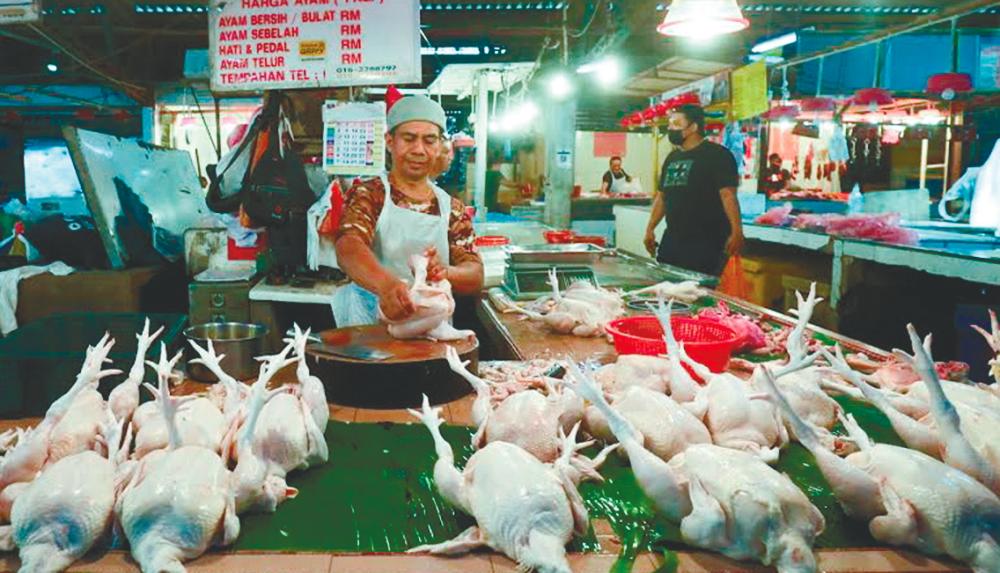PETALING JAYA: A price control mechanism as a short-term remedy can be imposed to alleviate risks and secure national food security, said Domestic Trade and Consumer Affairs Minister Datuk Seri Alexander Nanta Linggi, adding that the ministry was taking strategic steps to cushion possible impacts caused by such a move.
“This includes subsidising major food items such as poultry, cooking oil, sugar, flour and petrol and having enforcement activities on the ground to curb profiteering. The supply and demand for raw materials is the key factor in deciding price dynamics and stability.
“With the current increase in raw materials and product prices, the market is expected to stabilise within months through the government’s initiatives and programmes.”
Alexander said the global supply chain and market price volatility have been impacted by several factors.
“For example, the ongoing Ukraine-Russia crisis caused a rise in fuel prices, which impacted logistic costs and caused export restrictions,” he said, adding that weather, disease outbreaks, sanctions on raw materials and depreciation in some major currencies were also key factors.
Consumers Association of Penang president Mohideen Abdul Kader said he supports the government’s measures to control food prices, adding that the mechanism should be fair to everyone.
“No one in the supply chain should hoard products to create a rise in food prices or take advantage of the global situation to overcharge. Those caught doing so should be severely punished.”
Mohideen suggested that the government help small-scale farmers to market their produce by providing links to a comprehensive marketing system, in addition to efforts to help them increase food production.
He said it was also important for the government to set up a food safety and quality centre to ensure imported and local produce meet food safety standards.
“The government can also encourage farmers to switch to more efficient and sustainable agriculture methods to reduce their dependence on foreign labour and free their time for other work. Then, they can convert idle land to farmland, either for crops or animal feed. This will encourage farmers to produce value-added products.”
Federation of Malaysian Consumer Associations CEO Saravanan Thambirajah said price controls would serve as a temporary solution and the government should stabilise the market first.
“We have been depending on imports for so long that in the last three years, the government spent RM50 billion to import food items such as poultry, mutton, beef, fish and vegetables.
“We must create sustainable stocks first. Over reliance on imports can be a problem for the country as the weakening of our ringgit is quite frightening as it depends on the currency exchange.”
Saravanan added that the problem with vegetable prices was also due to dependency on imports, low local production and poor weather conditions that affected yield.















